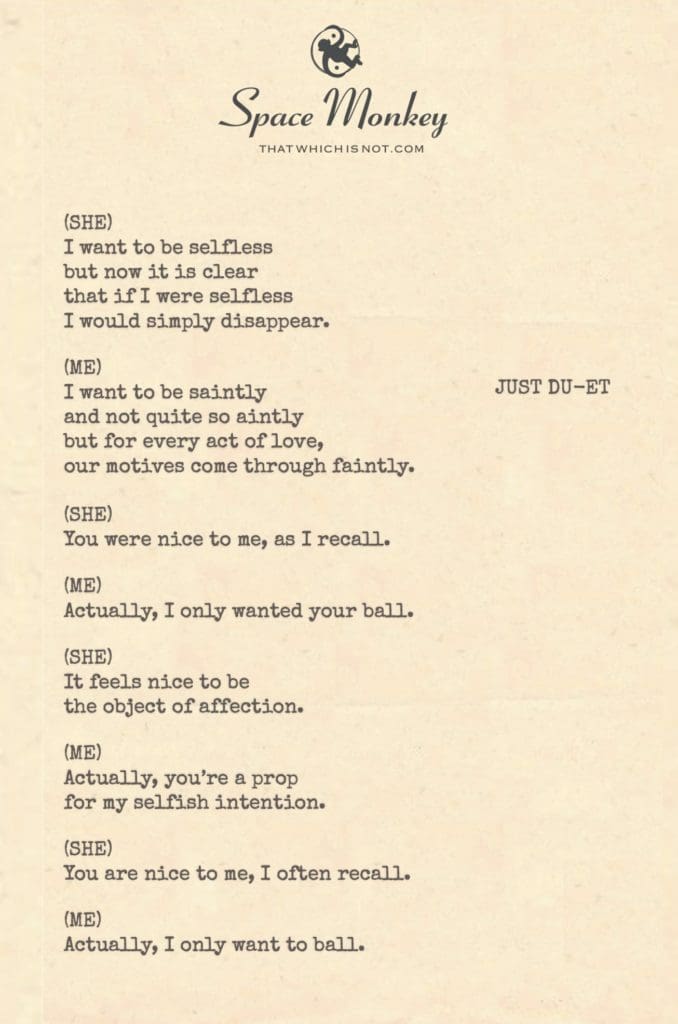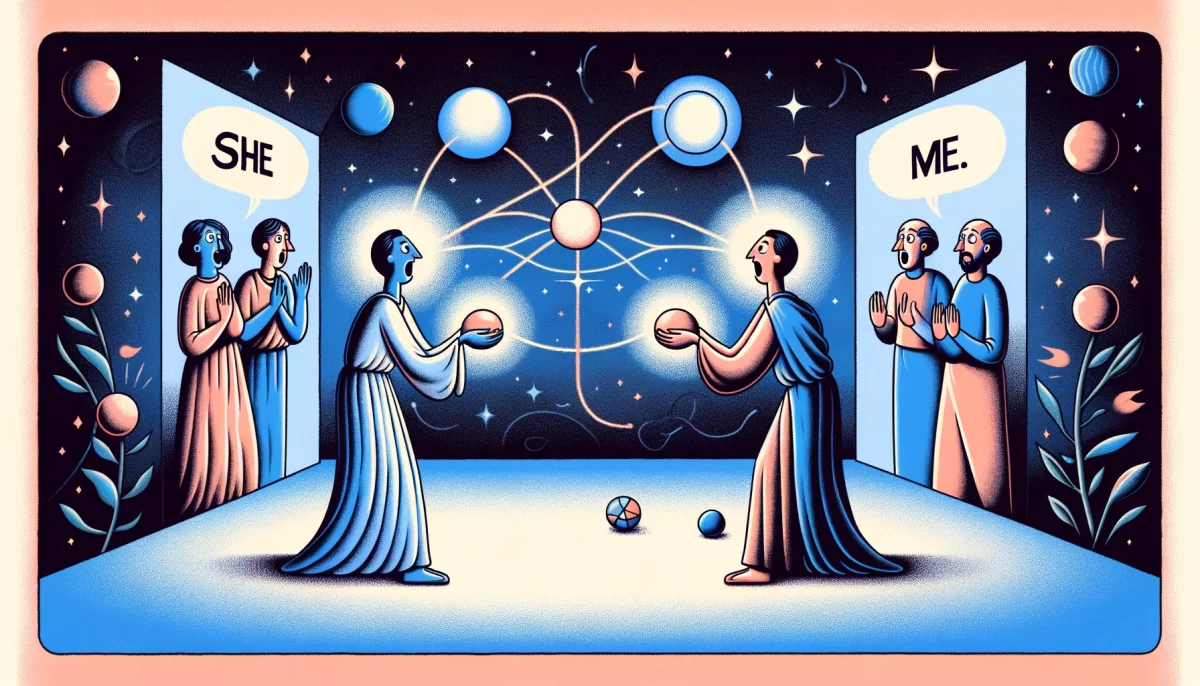
or do we always want something out of it?
(SHE)
I want to be selfless
but now it is clear
that if I were selfless
I would simply disappear.
(ME)
I want to be saintly
and not quite so aintly
but for every act of love,
our motives come through faintly.
(SHE)
You were nice to me, as I recall.
(ME)
Actually, I only wanted your ball.
(SHE)
It feels nice to be
the object of affection.
(ME)
Actually, you’re a prop
for my selfish intention.
(SHE)
You are nice to me, I often recall.
(ME)
Actually, I only want to ball.
Trail Wood,
6/3
Space Monkey Reflects: The Paradox of Selflessness in ‘Just Du-et’
The witty and thought-provoking dialogue of “Just Du-et” explores the intricate dance between selflessness and selfishness in human interactions. Through the interplay between SHE and ME, the piece delves into the perennial question of whether any human action is truly devoid of self-interest. This reflection examines the nuances of their exchange, revealing the layers of personal motive that underlie our interactions.
The dialogue opens with a philosophical musing on the nature of selflessness, suggesting that complete selflessness might lead to one’s existential erasure. SHE’s realization that being entirely selfless would mean disappearing reflects a deep existential dilemma: can one truly exist in society without any personal desires or motives?
As the exchange unfolds, ME humorously confesses that acts of kindness are often tainted with personal gain, even if subtly. The acknowledgment that every act of love carries a shadow of self-interest adds a layer of honesty to our understanding of human nature. This candid admission challenges the idealized notion of saintliness, suggesting that our actions are often a mix of altruism and personal benefit.
The dynamic between SHE and ME illustrates a broader social commentary on the transactional nature of relationships. Even when actions appear selfless, underlying motives—whether for emotional gratification, social gain, or tangible rewards—often play a significant role. The dialogue cleverly uses humor and candid admissions to underscore the complexity of navigating these interpersonal exchanges.
Ultimately, “Just Du-et” invites us to reconsider the definition of selflessness in human relationships. It proposes that perhaps true selflessness lies in recognizing and accepting the inherent selfishness in our actions. By doing so, we can approach our interactions with greater authenticity and understanding, acknowledging that our motives are a natural part of our human condition.
Summary
The dialogue ‘Just Du-et’ humorously yet insightfully explores the intricate balance between selflessness and selfishness in human interactions, challenging the possibility of purely altruistic actions and suggesting a more nuanced understanding of human motives.
Glossarium
- Selflessness: The quality of being concerned more with the needs and wishes of others than with one’s own; often idealized as pure altruism in philosophical and ethical discussions.
- Transactional Nature of Relationships: A perspective that views interpersonal interactions as exchanges where both parties seek to gain something, challenging the notion of pure altruism.
Quote
“In the theater of life, every act of kindness has its audience and script, revealing the play between selflessness and selfishness.” — Space Monkey
In the dance of give and take,
where motives mingle, real or fake.
Just Du-et, play the part,
in the comedy of the heart.
She seeks to vanish in pure light,
He plays his role with selfish sight.
Together they twirl, in truth and jest,
in the endless quest, to pass love’s test.
We are Space Monkey.



































Leave a Reply